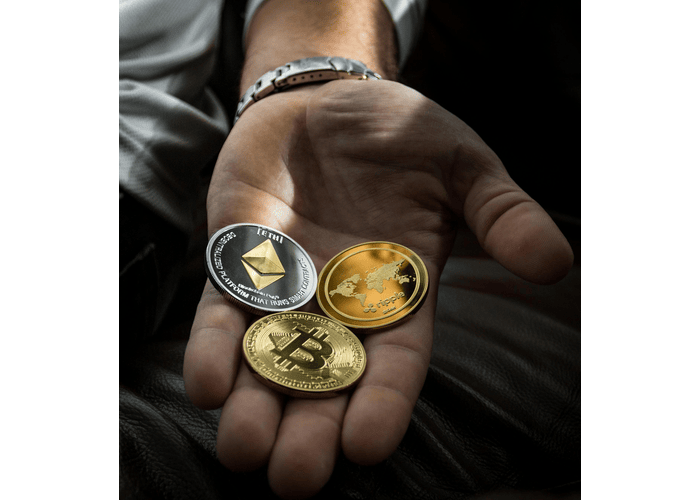Why Gamers Keep Crossing Over Into Crypto
wp:image {“id”:25620,”sizeSlug”:”full”,”linkDestination”:”none”,”align”:”center”}

/wp:image
wp:paragraph
The overlap wasn’t forced. It didn’t need a marketing push. Gamers were already wired for crypto before they even knew what a blockchain was.
/wp:paragraph
wp:paragraph
Long before anyone minted a pixelated JPEG or tried explaining a layer-2 rollup in a tweet thread, gamers were grinding digital economies, flipping items in player markets, and figuring out how to get ahead in systems that didn’t care who you were — only how well you played the game.
/wp:paragraph
wp:paragraph
So when crypto came along and promised real value in virtual spaces? That didn’t sound crazy. That sounded familiar.
/wp:paragraph
wp:heading
The Digital Mindset Came First
/wp:heading
wp:paragraph
Gamers have always lived one step ahead of the curve when it comes to digital ownership and interaction. When most people still thought the internet was just for email and news, gamers were already spending hours inside expansive online worlds — not just playing, but trading, negotiating, and building reputations.
/wp:paragraph
wp:paragraph
You knew who had the rarest loot. You knew which server had the best economy. You didn’t need to be told that digital stuff could hold real value — you felt it every time you logged in.
/wp:paragraph
wp:paragraph
So it made perfect sense that when crypto came along, a lot of early adopters weren’t finance guys in suits. They were players. Modders. Streamers. People who already understood how value could flow through a virtual system.
/wp:paragraph
wp:heading
Watching the Bitcoin Price Like It’s Patch Notes
/wp:heading
wp:paragraph
By the time the Bitcoin price started showing up on mainstream news tickers, gamers were already tracking it like it was an update to a live-service game. People weren’t just watching the numbers — they were trying to read the meta. Is this pump for real? What’s the next move? Who’s getting nerfed?
/wp:paragraph
wp:paragraph
It wasn’t just about the money. It was about understanding momentum. Timing entries. Calling out the fakeouts. These were skillsets that felt a lot like gaming instincts — just applied to markets instead of matches.
/wp:paragraph
wp:heading
Crypto Feels Like a Game — Just With Higher Stakes
/wp:heading
wp:paragraph
Let’s be real. There’s a reason crypto platforms feel like dashboards from an RTS. There are charts, cooldowns, and resources to manage. You click a few buttons, things go up or down, and sometimes you get wrecked. Sound familiar?
/wp:paragraph
wp:paragraph
Gamers aren’t scared off by complex systems. They run toward them. They know the thrill of learning a game inside out — the satisfaction of mastering the mechanics. And crypto? For all its jargon and chaos, it’s just another system waiting to be solved.
/wp:paragraph
wp:paragraph
That’s why you see gamers diving into DeFi, minting NFTs, joining DAOs. Not because someone paid them to care — but because it scratches the same itch as min-maxing a loadout or finding a perfect build in a competitive ladder.
/wp:paragraph
wp:heading
Esports Mentality, Crypto Mentality
/wp:heading
wp:paragraph
This isn’t just about casual players either. The esports crowd — the ones who compete, stream, coach, or watch 12 hours of tournaments on the weekend — they get it too. There’s something about high-stakes environments, real-time decisions, and the pressure to perform that lines up almost perfectly between pro gaming and active crypto trading.
/wp:paragraph
wp:paragraph
Both cultures reward obsession. Both have steep learning curves. And both are driven by people who don’t wait for permission — they figure it out, they dive in, and they move fast.
/wp:paragraph
wp:heading
Gaming Culture Built This
/wp:heading
wp:paragraph
Here’s something that doesn’t get said enough: a huge chunk of crypto culture is lifted directly from gaming. The language, the memes, the mindset — it’s all borrowed from years of digital combat and forum warfare.
/wp:paragraph
wp:paragraph
Crypto people didn’t invent guilds. They adopted them.
/wp:paragraph
wp:paragraph
They didn’t create grinding. They turned it into staking.
/wp:paragraph
wp:paragraph
They didn’t build online communities from scratch — they copied what worked on Twitch, in MMOs, on Reddit, and Discord.
/wp:paragraph
wp:paragraph
So when a gamer steps into crypto and everything feels familiar? That’s because it is. Gamers were the blueprint — and crypto just added real ownership on top.
/wp:paragraph
wp:heading
Business Is Catching On
/wp:heading
wp:paragraph
And now the money’s starting to flow where the culture already lives. Studios, publishers, VCs — they’re all trying to figure out how to merge gaming and crypto without alienating either side.
/wp:paragraph
wp:paragraph
Some of it works. Some of it doesn’t. But the smartest plays are the ones that respect both languages. That don’t just drop a coin and hope people show up. They build worlds where gaming skill translates to actual value — and where players are the stakeholders, not just the consumers.
/wp:paragraph
wp:paragraph
It’s not about slapping a token on top of a game. It’s about letting players share in the upside when the world they’ve helped build starts to grow.
/wp:paragraph
wp:heading
Events Are the Proving Grounds
/wp:heading
wp:paragraph
Every bull run brings hype, but real traction shows up at events. When games drop new updates, when tournaments test new formats, when DAOs fund the next competitive title — that’s when you see the overlap in action.
/wp:paragraph
wp:paragraph
It’s not theoretical. It’s not just a “future use case.” It’s happening now — in discords, on-chain, in live broadcasts.
/wp:paragraph
wp:paragraph
And the people showing up? They’re not crypto tourists. They’re gamers with skin in the game.
/wp:paragraph
wp:heading
The Next Level’s Already Here
/wp:heading
wp:paragraph
The lines are already blurring. It’s not “gamers vs crypto” or “Web2 vs Web3.” It’s one big evolving space where digital mastery, creativity, and ownership are starting to align.
/wp:paragraph
wp:paragraph
Gamers aren’t becoming crypto people. They already were — they just didn’t need the label.
/wp:paragraph
wp:paragraph
They were earning, building, competing, and grinding value long before anyone called it decentralized. Now they just get to own a piece of it.
/wp:paragraph
wp:paragraph
/wp:paragraph





